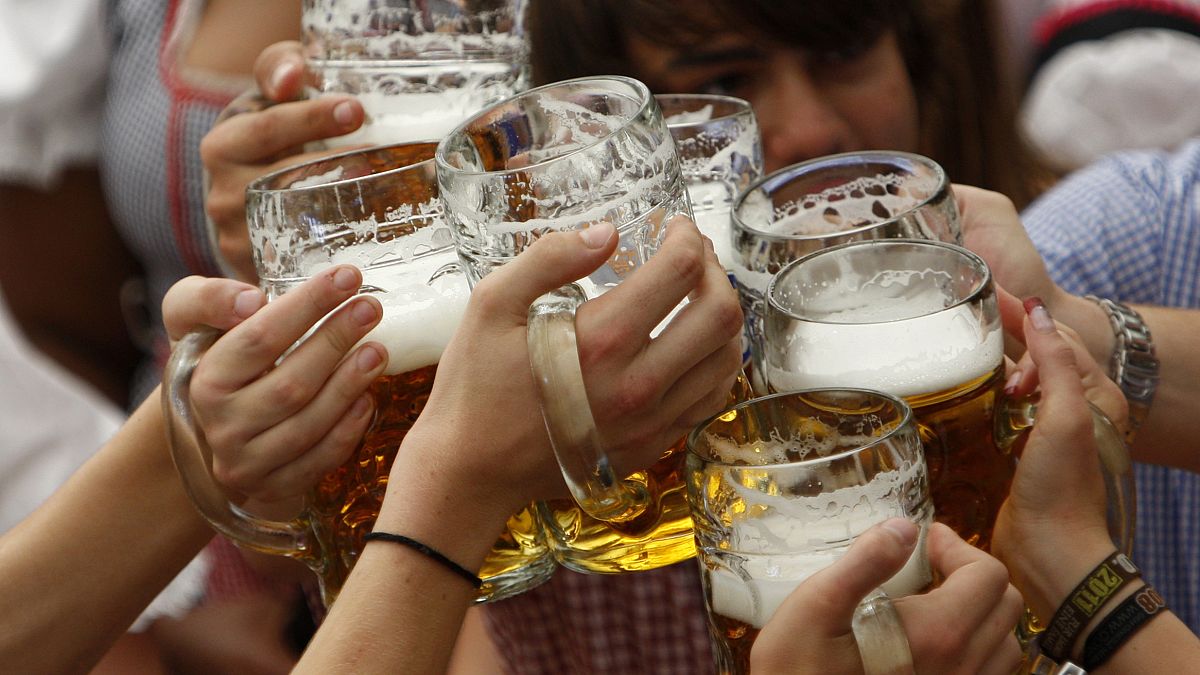Heavy drinkers likely to change habits if alcohol had calorie labels

Some 54 per cent of heavier drinkers said in a survey that they would make changes to their drinking habits if calorie labels were introduced.
Around half of heavy drinkers in England say they would change their habits if alcohol had calorie labels, according to a new survey.
The research, which was published in the journal BMJ Open, included responses from more than 4,600 people who were asked whether they would change their drinking if “calorie information was provided on alcoholic drinks”.
Of those surveyed, around a quarter did not drink, 78 per cent were low-risk drinkers and 22 per cent were hazardous drinkers based on a validated alcohol use disorders questionnaire.
Men were more likely than women to drink alcohol. They were also more likely than women to be hazardous drinkers rather than low-risk drinkers.
Researchers found that 54 per cent of the heavier or “hazardous” drinkers said they would make changes if calorie labels were introduced.
More than a quarter of heavy drinkers said they would pick lower-calorie drinks, while one in six said they would drink alcohol less frequently, according to the survey.
The survey results suggest that “labelling might help target higher-risk drinkers who are getting a greater proportion of calories from alcohol and are more likely to gain excess weight as a result,” Andrew Steptoe, lead author of the study and head of the research department of behavioural science and health at University College London (UCL), said in a statement.
“While survey responses do not necessarily correspond to behaviour, the results indicate that labels could play a useful role in reducing consumption of the hidden calories in alcohol,” he added.
Overall, some 46 per cent of people who drink alcohol said they would change their habits if calorie labelling was introduced.
Heavy drinkers were better at estimating the calorie content of alcoholic beverages than non-drinkers as well.
Yet the researchers cautioned that as heavy drinkers were more likely to overestimate the calorie content of alcoholic beverages, increasing knowledge could encourage some drinkers to consume more.
The researchers also noted several limitations in the study, including that it was based on self-reporting of drinking and there was no information about participants’ body weight. They also noted that “the number of individuals who reported harmful levels of drinking was small”.
Labelling in isolation ‘unlikely’ to substantially reduce harms
A 2011 European Union directive requires nutrition labelling on food and beverages, but drinks containing more than 1.2 per cent alcohol content are exempt.
Europe’s recent beating cancer plan states the European Commission will propose a mandatory list of ingredients and nutrition declaration labels on alcoholic beverages.
Dr Katherine Severi, chief executive of the Institute of Alcohol Studies, said in a statement provided to Euronews Health that the new research “shows that people want to know the calories in the alcohol they drink and that it would potentially help inform their decisions”.
“Alcohol is linked to more than 200 health conditions including cancer, liver disease, and high blood pressure, so people have a right to know what they are consuming. Only mandatory labelling will provide that, not industry self-regulation,” she added.
Jamie Brown, a co-author of the paper and professor of behavioural science at UCL, said that while the results were “encouraging, it is unlikely that alcohol calorie labelling in isolation would contribute substantially to the UK government’s strategy to reduce harms from alcohol and obesity”.
“It might have a positive role as part of a more comprehensive approach, including regulation on advertising, availability, taxation and price”.
World News || Latest News || U.S. News
Source link



